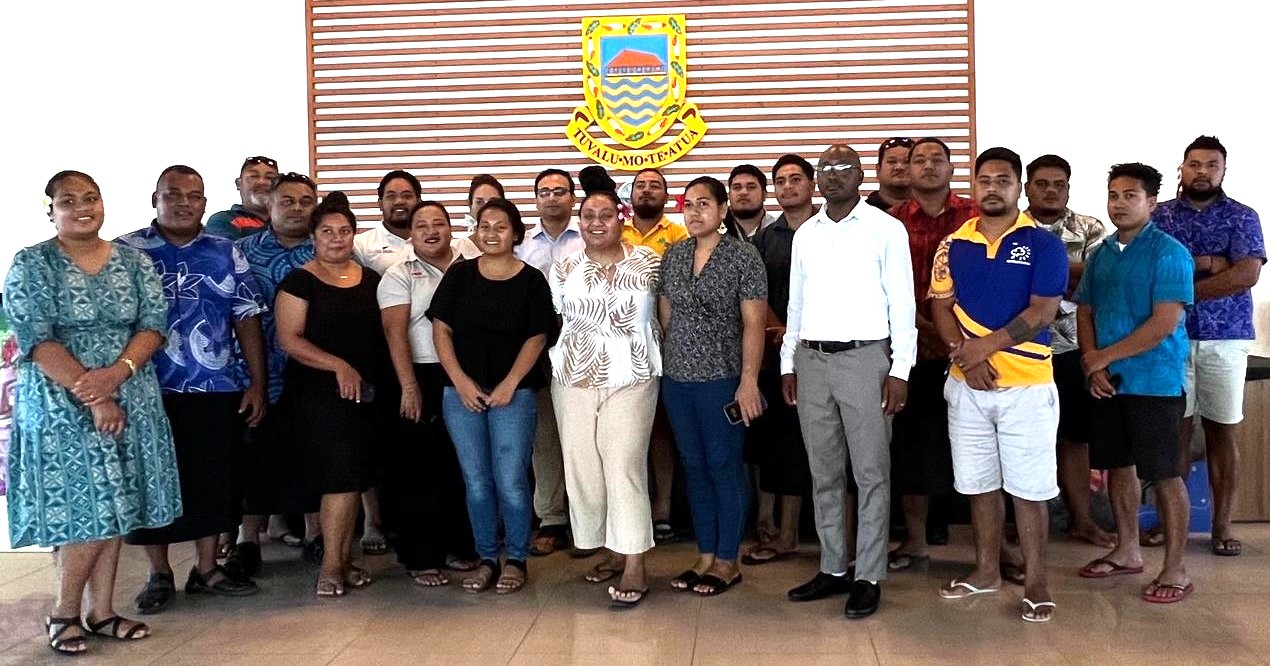The Government of Tuvalu, with technical assistance provided by the Commonwealth Climate Finance Access Hub (CCFAH), has hosted a climate finance negotiation training in the capital, Funafuti.
Held at the request of the Tuvaluan Government, the workshop was a proactive measure to enhance the country’s capacity in navigating the complexities of international climate negotiations, particularly in the context of the upcoming UNFCCC Conference of the Parties (COP).
Many small island developing states, which are on the frontlines of climate change, lack the capacity to effectively engage in international climate change talks, which can be legally and technically complex. Training workshops help to boost vital knowledge and methodologies for accessing funding to prevent and manage risks associated with climate change.
More than 20 government officials and representatives from civil society organisations participated in the training which took place from 11-13 March 2024.
These global climate negotiations take place each year and are the principal decision-making body of the United Nations Framework Convention on Climate Change. COP29 will be held in Baku, Azerbaijan, from 11-22 November 2024.
In Tuvalu, sessions included: demystifying COP, understanding COP processes, negotiation techniques, and critical analysis of negotiation texts.
The CCFAH team also held a bilateral meeting with the Hon Naina Talia, Tuvalu’s Minister of Environment and Climate Change, and Fakasoa Tealei, Principal Secretary of Tuvalu’s government. The minister expressed appreciation for the Commonwealth Secretariat’s support in expediting Tuvalu’s efforts to secure climate finance for the vulnerable small island nation.
He emphasised Tuvalu’s urgent need for climate finance to fund land reclamation projects and bolster resilience within its island communities. Minister Talia also expressed optimism that the climate change negotiations training would equip Tuvaluan stakeholders with the requisite skills and knowledge to build consensus around pressing issues such as climate finance, and loss and damage funds.
Dr Oldman Oduetse Koboto, Adviser and Manager of the CCFAH, led the training with Soumik Biswas, Commonwealth Regional Climate Finance Adviser for Asia Pacific. Delegates said that their expertise and guidance provided invaluable insights into crafting intervention statements, assessing negotiation texts, and strategically positioning Tuvalu’s interests on the global stage.
Dr Koboto said:”The primary goal of the Climate Change Negotiations Training was to empower stakeholders with the essential skills and knowledge required to understand the workings of the COP processes and negotiation techniques.
“This training enabled participants to effectively utilise these skills in their preparations for Baku, ensuring Tuvalu’s voice is heard, and her interests are represented in the international climate change narrative.”
The practical insights gained from the training are expected to enhance Tuvalu’s ability to engage constructively at COP29 and advance the country’s resilience and adaptation initiatives.
In the lead-up to CHOGM 2024, the Commonwealth has reaffirmed its support for island states like Tuvalu, which face unique and acute challenges posed by climate change. As part of its commitment to fostering a resilient common future, the Commonwealth stands ready to reinforce efforts aimed at addressing the vulnerabilities of island nations and ensuring their voices are heard on the global stage.
Initiatives such as the climate change negotiations training underscore the proactive approach of Tuvalu and other island states in confronting the climate crisis.














